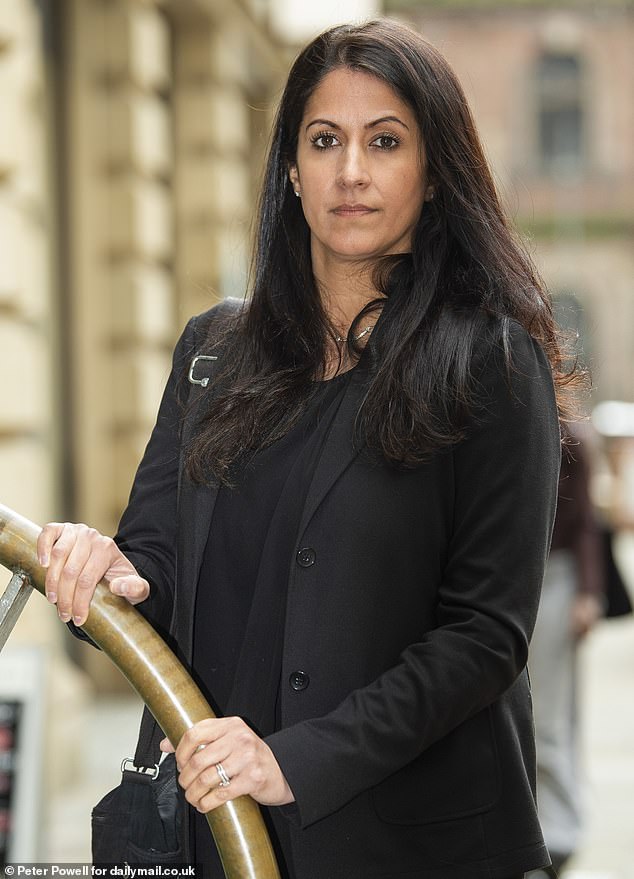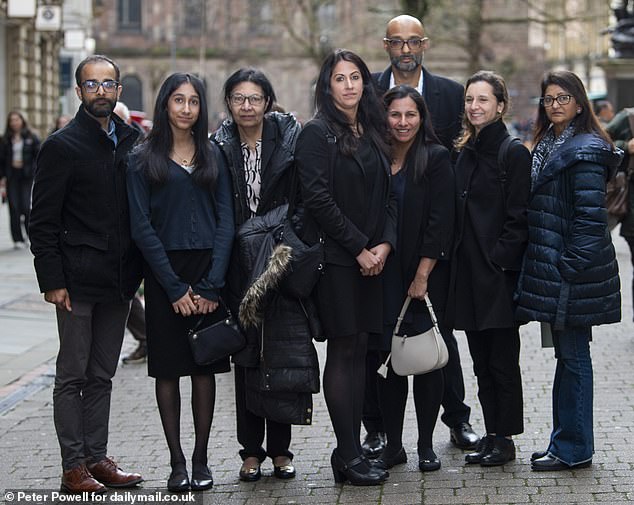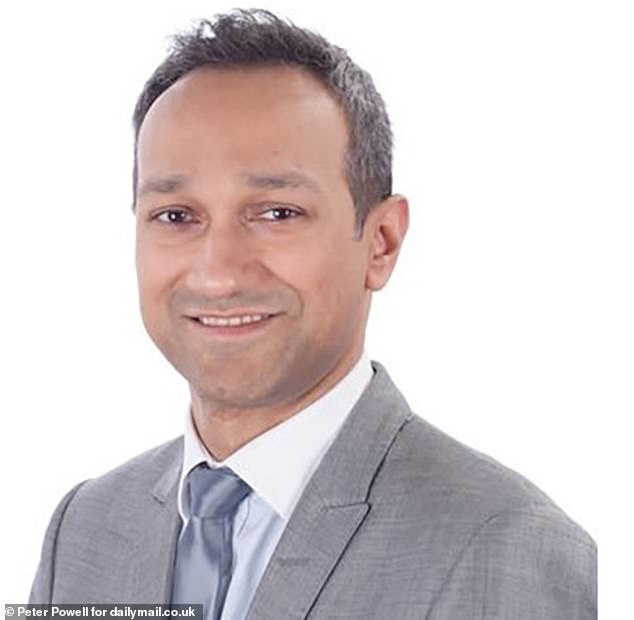‘Brilliant’ medical professor and father-of-two, 43, died after failed treatment for rare condition that should never have been carried out, coroner rules
A ‘brilliant’ medical professor and father-of-two died after botched treatment that should never have been carried out, a coroner ruled today.
Prof. Amit Patel suffered massive internal bleeding after a procedure for a rare condition on which he was a national expert.
A coroner said Prof Patel’s death was caused by ‘failures in his care’ and that his death was ‘avoidable’.
The 43-year-old was one of the brightest doctors of his generation and a pioneer of stem cell transplantation, an inquest heard.
But in August 2021, the father-of-two young daughters was admitted to Wythenshawe Hospital in Manchester with flu-like symptoms believed to be related to a throat infection.
Prof. Amit Patel (pictured with his daughters) suffered massive internal bleeding after a procedure for a rare condition on which he was a national expert. A coroner said Prof Patel’s death was caused by ‘failures in his care’ and that his death was ‘avoidable’

The 43-year-old was one of the brightest doctors of his generation and a pioneer in the field of stem cell transplantation, an inquest heard (photo: Prof. Amit Patel and his wife, Dr. Shivani Tanna)
Medics made a ‘working diagnosis’ that Prof Patel had Still’s disease – a rare inflammatory condition – which caused a potentially fatal immune disease called HLH (haemophagocytic lymphohistiocytosis).
Following consultation between hospital staff and national medical advisor panel HLH MDT, it was agreed that Prof Patel would undergo an endobronchial ultrasound-guided biopsy (EBUS) to internally examine his lungs for conditions, including inflammation. This was carried out on September 2, 2021.
But Prof Patel had also developed disseminated intravascular coagulation (DIC) – a serious and rare blood clotting disorder that can cause uncontrollable bleeding.
Doctors had not informed the HLH MDT of this, which would have led to the panel recommending against the treatment.
Coroner Zak Golombek said the hospital’s inability to provide all relevant information meant recommendations were made based on an ‘incomplete clinical picture’.
He said: “The deceased underwent an EBUS procedure on the recommendation of the National HLH MDT.
“This recommendation was based on an incomplete representation of the deceased’s clinical case and therefore should never have been made.
‘If the national HLH MDT had received all relevant and immediately available information, the procedure would not have gone ahead and the deceased would not have died on October 28.

His wife, Dr Shivani Tanna, told the inquest that she had to keep him alive by monitoring his observations and fluids herself, adding that she collapsed when she saw him in intensive care.

Amit Patel’s wife Shivani is pictured with her family at the inquest into Prof Patel’s death on Thursday. Pictured from left to right: Alchil Tanna, Tia Patel, Nita Thakrar, Shivaji Tanna, Anisha Tanna, Elen Stritch and Jayshree Wakerja
The coroner said: ‘In my judgment these were not systemic failures but the failures of individuals.’
Mr Golombek – sitting at Manchester Coroners’ Court – also criticized the hospital’s consent process and the way Mr Patel was treated by doctors as a colleague rather than a patient.
He said: ‘The conversation with Professor Patel on September 2 did not contain sufficient reference to his now established DIC and the effects this could have on the proceedings themselves.
‘The consent process was too short in terms of time to start the procedure. This prevented Professor Patel from calculating, processing and discussing the developing clinical picture and the procedure itself.
‘And this is a common thread throughout this case: Professor Patel was not treated like an ordinary patient.
‘Despite his undoubted wealth of medical knowledge, he was first and foremost a husband and father, and was not given the opportunity to reflect on the procedure itself and its implications for its clinical course.
“These two factors contributed more than minimally to the decedent’s death, as measured by probabilities.”
Prof. Patel suffered internal bleeding which led to ‘significant breathing difficulties’, and was later taken to Manchester Royal Infirmary, where he died on October 28, 2021.
Mr Golombek summarized the hearing: ‘Professor Patel’s case has not been adequately presented to the national HLH MDT. This was a failure in his care.
‘As a result, the National HLH MDT did not make a recommendation for an EBUS after considering all relevant clinical information.
‘If all relevant information had been available, such a procedure would not have been recommended.
‘It follows that without this failure the EBUS would not have taken place at the time of September 2.
‘Professor Patel had developed DIC on September 2 and he should have been specifically informed of this prior to the EBUS procedure.

In August 2021, Prof. Patel was admitted to Wythenshawe Hospital in Manchester with flu-like symptoms suspected to be related to a throat infection (file image from Wythenshawe Hospital)

Prof. Amit Patel was a pioneer of stem cell transplantation and an expert hematologist before his death at Wythenshawe Hospital in Manchester
‘Professor Patel did not obtain proper consent for this procedure; the consent process was too rushed and too close in time to the start of the procedure itself.
‘Furthermore, the operating doctor did not provide Professor Patel with the same level of care as he would provide to any other patient who was not himself a doctor.
‘And finally, Professor Patel’s death was caused by failings in his care, and so his death was avoidable.
‘I am also of the opinion that the deficiencies identified were a failure to provide basic medical care to a person in a dependent position.’
The coroner also praised Prof Patel’s work, saying: ‘He was clearly a brilliant man whose legacy will extend beyond his academic and professional achievements.
“I hope that in time the memories you all shared together will shine brightly beyond the period I have explored.”
